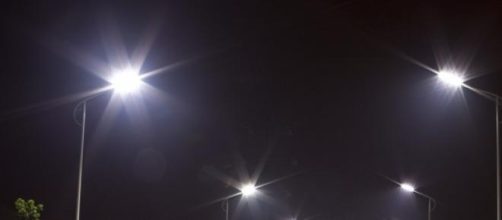Amid Government budget cuts, a recent survey has shown that 24% of street lights are either dimmed or turned off by our councils in order to save money. However, despite the obvious financial benefits, is public safety being compromised by plunging our streets into darkness?
The survey, conducted by the Labour Party, has found that three quarters of UK councils are using such budgeting measures - With some councils dimming up to 99% of their lights. Yet claimed safety and crime concerns were shown to be accurate when, in April, the Essex constituency of Brentwood ordered for the lights to be switched back on after an increase in burglaries was recorded.
This came shortly after communities secretary Eric Pickles said switching off street lights would deter burglars because they liked "ambient light".
It has been found that fifty councils have been switching off street lights at night, 98 have simply been dimming street lights and 42 have been doing both. Further councils drawing up plans to save money on street lighting include: Cambridgeshire and North Yorkshire; Leeds and Hounslow.
The Labour party have warned that these measures have occurred following the announcements of next year's government grants, with ministers leaving it to councils to "make the right call" on spending. Are local councils making the right calls though?
In these darkened times, Unison has reported that 85% of its female members felt less safe at night when their was a lack of street lighting - with 70% saying it would put them off going out.
This begs the question... Is putting public safety and concerns in jeopardy really worth it to save a bit of money? The motoring group AA have claimed that recent surges in switching off and dimming street lighting has contributed to car crashes, with motorists having less visibility in the night time hours.
However, environmental campaign groups, such as Protect Rural England, have previously campaigned for the switching off of street lights in order to "reduce the impact of light pollution".

